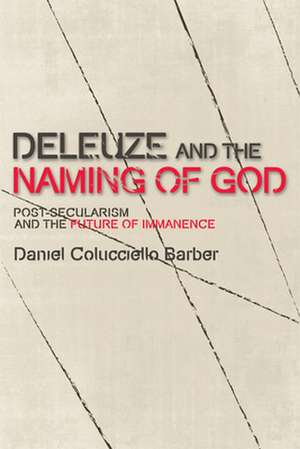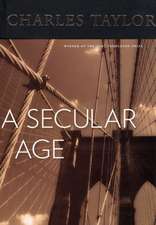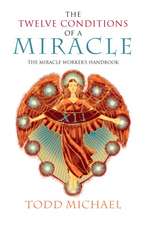Deleuze and the Naming of God: Plateaus New Directions in Deleuze Studies Eup
Autor Daniel Colucciello Barberen Limba Engleză Paperback – 30 ian 2015
Deleuze's philosophy of immanence vigorously rejects every appeal to the beyond. For this reason, it is often presumed to be indifferent to the concerns of religion. Daniel Barber shows that religion and Deleuze's thought are both motivated by a demand to create new modes of existence. Thus, the enemy of Deleuze's philosophy is not religion but the transcendent.Deleuze and the Naming of God shows how Deleuzian immanence is able both to oppose religious transcendence and to enter an alliance with immanent accounts of the name of God. In doing so, it shows a way out of the paralysing debate between religion and the secular.
| Toate formatele și edițiile | Preț | Express |
|---|---|---|
| Paperback (1) | 160.69 lei 22-36 zile | +36.55 lei 5-11 zile |
| EDINBURGH UNIVERSITY PRESS – 30 ian 2015 | 160.69 lei 22-36 zile | +36.55 lei 5-11 zile |
| Hardback (1) | 643.49 lei 43-57 zile | |
| EDINBURGH UNIVERSITY PRESS – 30 dec 2013 | 643.49 lei 43-57 zile |
Preț: 160.69 lei
Preț vechi: 179.70 lei
-11% Nou
30.75€ • 32.18$ • 25.59£
Carte disponibilă
Livrare economică 10-24 martie
Livrare express 21-27 februarie pentru 46.54 lei
Specificații
ISBN-10: 0748699783
Pagini: 232
Dimensiuni: 152 x 234 x 15 mm
Greutate: 0.4 kg
Editura: EDINBURGH UNIVERSITY PRESS
Seria Plateaus New Directions in Deleuze Studies Eup
Notă biografică
Cuprins
Acknowledgements; Introduction; A Proclamation; Three Trajectories for Deleuze's Immanence; Deleuze and Philosophy of Religion; Surveying the Argument; 1. Beginning With Difference: Heidegger, Derrida, and the Time of Thought; Heidegger's Difference: A ¿More Originary Way'?; Don't Think Ahead of Time: From Heidegger to Derrida; What Comes After Différance?; 2. Deleuze: The Difference Immanence Makes; The Architecture of Immanence; Re-expression and the Unconditioned Power of Immanence; Giving Intensity to the Mode of Existence; Virtually New; Is Time a Crystal?; Dividing Time; The Autonomy of the Product; The Ethics of Re-expression and the Naming of God; 3. Stuck in the Middle: Milbank, Hart, the Time of Chronos; ¿The Dog is in the Garden': God's Being and the Meaning of ¿Is'; Violent Origins; The Interstice and the Accord; Ethics of the Crack; The ¿Suspended Middle'; Back to the Present; 4. Yoder: From the Particular to the Divine; Against the Powers; ¿A Host of Other Free Agents': Exceeding the Frame; Secular Creativity; Equality With God is Not Something to be Emanated; Time for Re-writing; 5. Adorno: A Metaphilosophy of Immanence; The Mediation of Nonidentity; Conceiving the More; ¿We lack creation': A Deleuzian Metaphilosophy?; Shame, Suffering, and Metaphilosophy; Senseless Animals; 6. Icons of Immanence: Believe the Now-Here, Fabulate the No-Where; Bleakness and Belief; Intolerability; The Creation of Real Beings; Communication; Utopia; The Fabulation of Icons; Conclusion: Toward the Future.
















